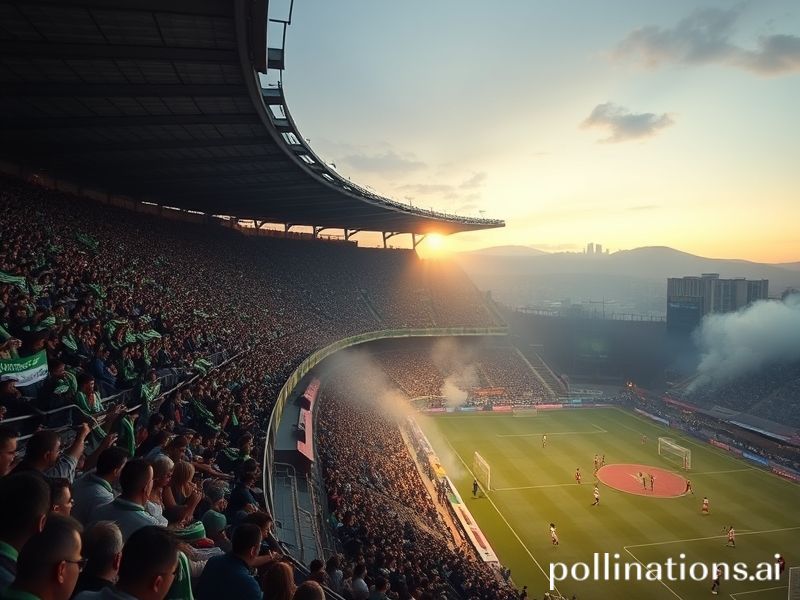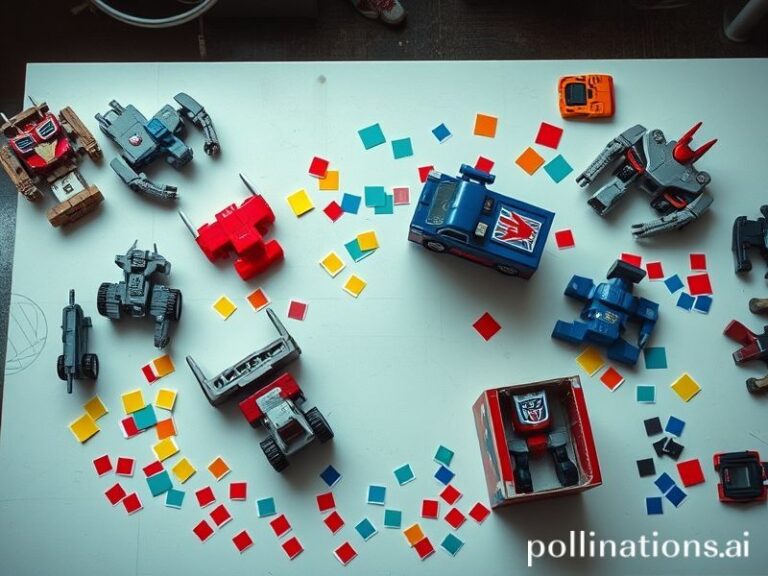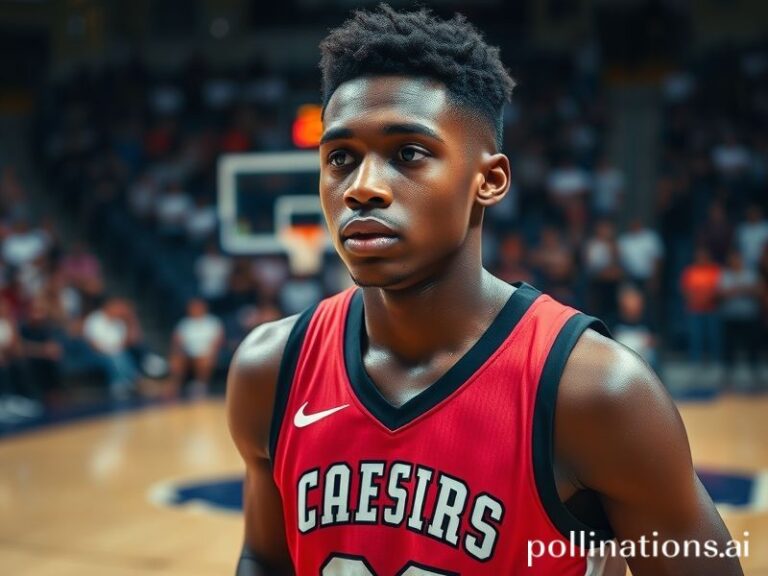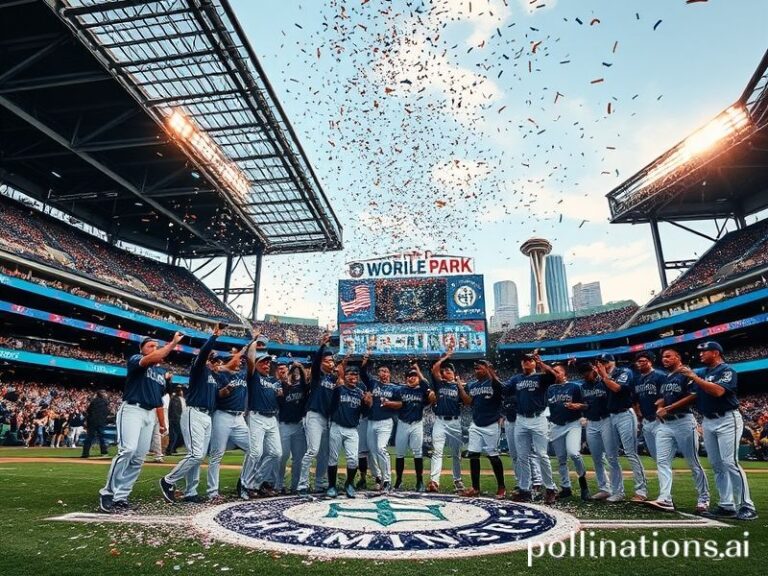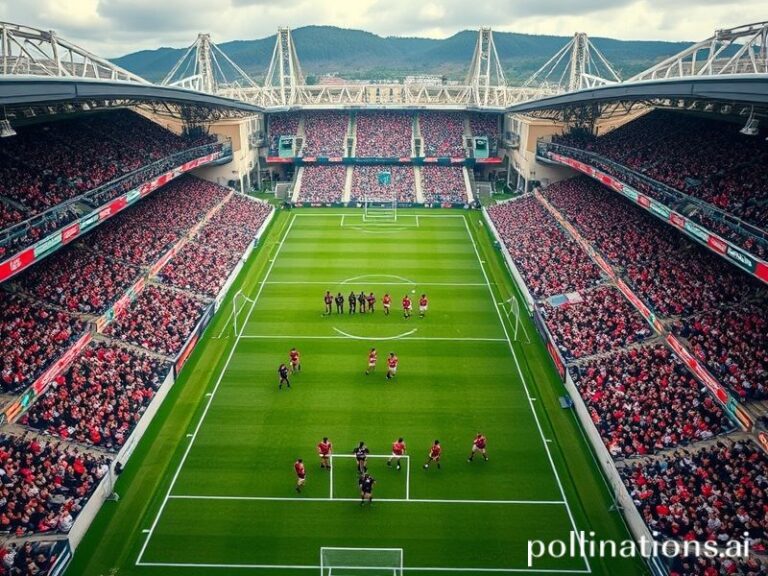Medellín’s Green Cathedral: How Atlético Nacional Became the World’s Favorite Redemption Arc
The Green Cathedral of the Andes, Now Streaming Worldwide
Dave’s Locker – International Desk
Medellín—If you crane your neck high enough above the jacaranda trees and concrete scars of Colombia’s second city, you’ll spot the twin spires of Estadio Atanasio Girardot. Locals call it “la Catedral Verde,” which sounds charming until you remember that the original cathedral in town is famous for being built with drug money and consecrated by a pope who later apologized for basically everything. Atlético Nacional, the parishioners inside, are likewise an institution that has learned to convert sin into spectacle. On any given match night, 45,000 lungs exhale green smoke in perfect sync with whatever geopolitical anxiety happens to be trending on X.
The club’s global footprint is now bigger than Pablo Escobar’s old hippos. Last year, a crypto-exchange in Singapore signed a sleeve sponsorship that allows fans in Jakarta to mint NFTs of Juan Pablo Ramírez’s left-foot volleys. The transaction fees alone could bankroll a mid-table Belgian side, but in Medellín they’re earmarked for a youth academy whose graduates keep popping up in the Bundesliga like unsolicited LinkedIn requests. Europe’s scouts, once terrified of flying into Olaya Herrera Airport, now land in business class with diplomatic immunity and cholesterol counts high enough to qualify for Colombian citizenship.
This is not your uncle’s narcofútbol. The club’s president is a former leftist guerrilla fighter turned MBA, the sort of résumé that would get you blacklisted by HR in Zurich but earns you a TED talk in Davos. He speaks fluent disruption, peppering press conferences with phrases like “post-conflict value chains” while discreetly sliding the microphone away from questions about why the club’s holding company still owns a chain of funeral parlors. The irony is delicious: a team that once laundered reputations now exports them, shrink-wrapped in highlight reels and shipped to Riyadh for Monday-morning water-cooler consumption.
The wider world has noticed. When Atlético Nacional won the Copa Libertadores in 2016, the BBC led with the headline “Colombian Redemption,” as if a football trophy could atone for half a century of extrajudicial killings. CNN ran a split-screen of jubilant fans and DEA archives, because nothing says balanced journalism like juxtaposing confetti with body bags. Meanwhile, Chinese state media praised the victory as proof that “social harmony through sport” works, conveniently omitting that the club’s ultras still sing songs calling the referee’s mother a socialist.
But soft-power victories come with subscription fees. Qatar Airways now flies direct from Doha, ferrying influencers who land asking where to film “authentic” salsa videos before retiring to rooftop bars that serve artisanal gin in former cartel safe houses. The city’s murder rate has plummeted, statistically speaking, though the same could be said for any metric once the accountants get creative. What hasn’t changed is the gravitational pull of the game: kids in Senegal wear counterfeit Nacional jerseys manufactured in Bangladesh, stitched by workers who’ve never heard of Medellín but know the precise shade of green that screams “aspiration.”
Tonight, as the team lines up against Boca Juniors in a group-stage clash that FIFA has kindly scheduled at 3 a.m. European time—because nothing says “global sport” like sleep deprivation for an entire continent—the cameras will zoom in on the tifo that reads, in English for maximal Instagrammability, “FROM WAR ZONE TO END ZONE.” Somewhere in the directors’ box, a venture capitalist from Oslo will check his phone and realize that the tokenized equity he bought in Nacional’s future TV rights is up 14%. He will smile, sip his aguardiente, and decide that redemption, like everything else, is simply a matter of market timing.
The final whistle will blow, the floodlights dim, and the city will return to its perpetual negotiation with gravity and history. But the feed keeps rolling, piped through undersea cables to living rooms in Lagos and laptops in Vancouver, reminding us that the beautiful game is now less a sport than a planetary mood ring. And somewhere in Medellín, a teenager who wasn’t alive when the bombs went off will lace up boots bought with cryptocurrency, step onto a floodlit pitch, and wonder why the whole world is suddenly watching him grow up in real time.

